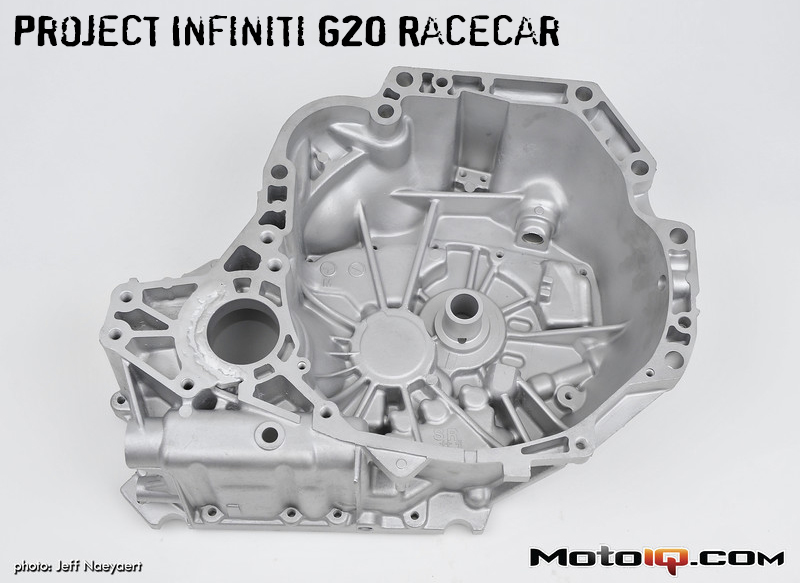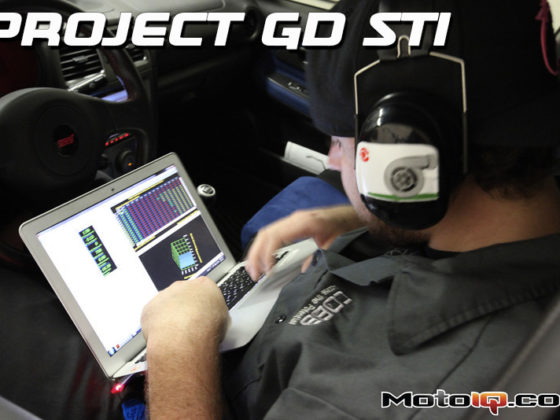,
With the transmission torn completely down, we sent off the gear stacks and ring gear to Cryoscience for cryotreatment. Cryotreatment uses extremely low temperatures to correct what room-temperature metal casting introduces to metals. When metal is formed at atmospheric temperature and pressure the molecules are disorganized and contain weak carbon particles called Austenite. What Cryogenic Treatment does is to convert these disorganized molecules and weak carbon particles into highly organized molecules and very strong carbon particles called Martinsite. We have had good luck in the past with Cryoscience-treated gears in other, weaker SE-R transmissions (including on that survived almost 400lb-ft of torque for thousands of miles of abuse, including hotlapping), and their service and turnaround time are unparalleled.
After cryotreatment, the gears were shotpeened to improve the surface strength of each component. Shotpeening causes plastic and elastic deformation of the surface of a part, resulting in beneficial compressive forces remaining in the surface of the part. Since fatigue failure is caused by tensile stresses in the surface of a part, this layer of residual compressive forces effectively delays the onset of fatigue failure in the part. For our transmission, we chose 220, followed by 330 shot, all with a hardness of 65.
The last step in treating the gears prior to installation is a process that avid MotoIQ readers are very familiar with: WPC surface treatment. In case you’ve been living under a motorsports boulder for the last couple of years, WPC surface treatment is a process that fires ultra fine particles towards the surface of a part at very high speed. The thermal discharge resulting from this process will permanently alter the surface of the part, not only strengthening the part, but also decreasing friction at the same time.
 |
| WPC media (bottom) is considerably smaller than typical shotpeening media (top). |
WPC can treat any disassembled metallic item without noticeable change in dimensions. We had them treat all of the parts in the gear stack to ensure their durability and to reduce friction. This reduced friction should also help keep the transmission fluid fresh longer, as well as keep its temperatures more reasonable. Past experience has shown that the surface temperature of the transmission can exceed 300°F. Not good.
One of the nicest things about the WPC process is it makes the parts look absolutely magnificent after treatment. As inconvenient it may be, the parts came out clean enough to eat off of.
 |
| The WPC surface luster after treatment is beautiful. |
 |
| Close up shot of the input shaft after WPC treatment.
|
 |
| Ring gear and countershaft after WPC treatment.
|
 |
 |
 |
| We also had the synchros, shift rod and forks treated to ensure long service life. |




4 comments
Hi,
Can I use this box on a 4wd Pulsar/U13-14 Attesa Sentra?
Cheers
Nelson
Only if you want to convert to FWD.
Hi
My Car using sr20ve with rs5f32v gearbox.
i had a rs5f50a gearbox for spare.
Can i use the 50 and 32 gears mixed in the 32v housing?
Because i feel 2nd gear to 3rd gear too sparse. if i running 8000 rpm on 2nd gear and change 3rd gear then always without VVL.
Cheers
Jason
No, the gears are fixed on the shaft unless you change the entire shaft.